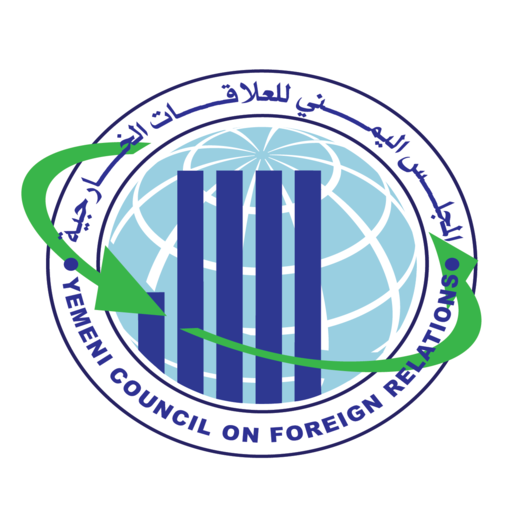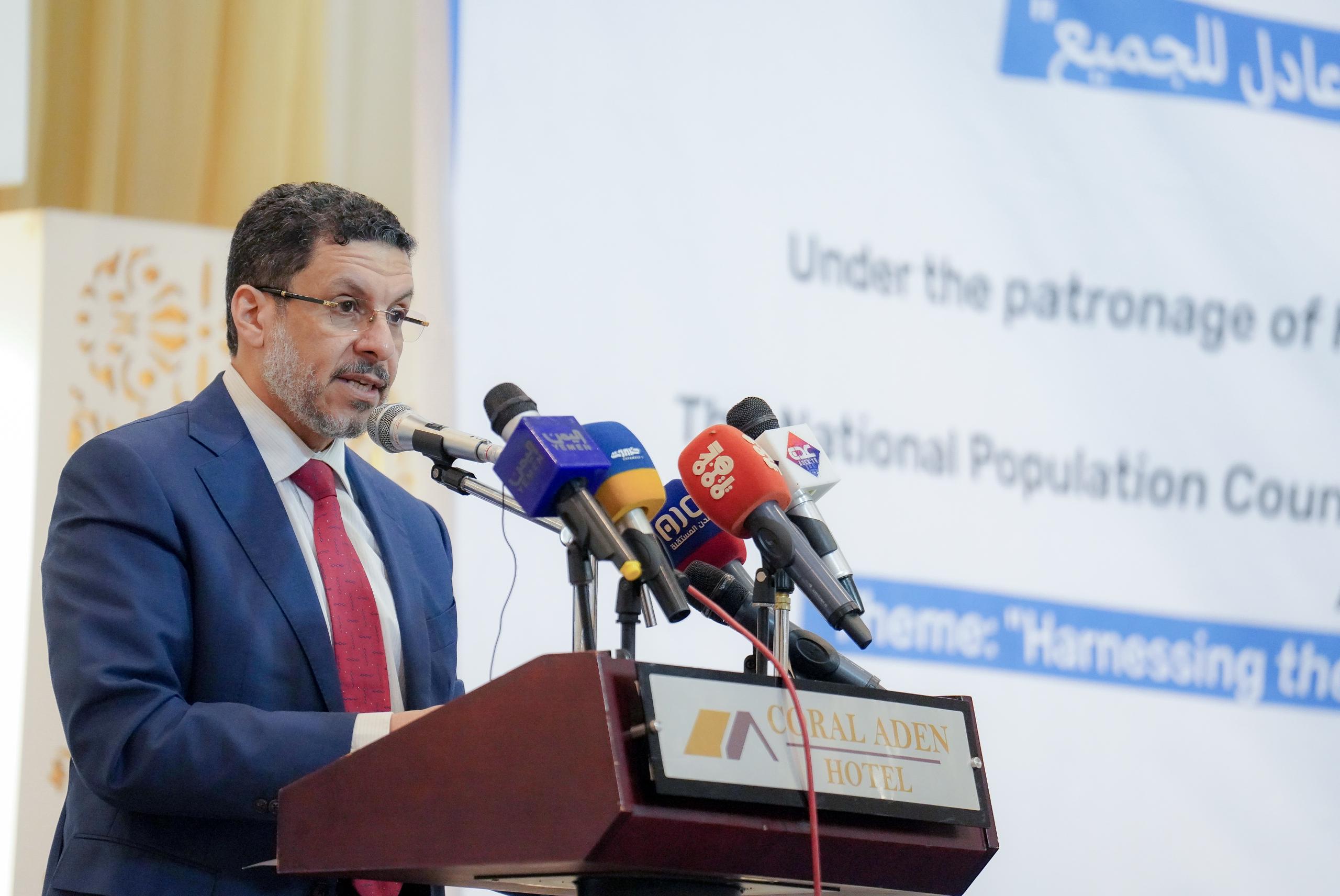Source: SABA News Agency
Prime Minister Dr. Ahmed Awadh bin Mubarak attended the celebration of World Population Day 2024 in the temporary capital Aden on Sunday.
The event was organized by the National Population Council under the slogan “Harnessing the Power of Comprehensive Data for a Resilient and Equitable Future for All”.
The ceremony began with a minute of silence and the recitation of al-Fatiha for the souls of the martyrs in the occupied Palestine due to the ongoing brutal Zionist aggression.
In his speech, the Prime Minister, who is the Chairman of the National Population Council, emphasized the importance of celebrating this day to take a comprehensive look at the challenges accompanying the efforts to balance population growth and achieve sustainable development. He explained that the population factor and demographic diversity are a factor of the strength or weakness of the state, depending on the prevailing population, educational, economic and health characteristics in the country.
He said, “Our vision in the government is the human resource is the most important resource that we must benefit from and improve its characteristics through the services and programs that we will work to implement, despite the great challenges and financial and economic pressures.”
He pointed out that the high population growth in Yemen requires the development of national policies and strategies to balance the increase in population growth and development, which poses serious challenges to the government in terms of providing basic services, managing economic challenges, optimal utilization of natural resources, reducing poverty and unemployment, providing job opportunities and building infrastructure capable of accommodating the needs of population growth.
He alluded to the financial and economic pressures facing the government in dealing with these challenges due to the ongoing war by the Houthi terrorist militia and depriving the Yemeni people of benefiting from their resources.
Dr. Ahmed Awadh bin Mubarak shed light on the challenges facing the government in the population aspect, as 45% of the population are under the age of 16, 65% are of working age, 50% of children suffer from chronic malnutrition, and 21% suffer from stunting as a result. He warned of the seriousness of these figures, which necessitates serious dealing with them and taking great responsibility towards them and giving them priority in all plans, programs and expenditures.
He addressed the issues of displacement due to the war and the continued influx of refugees to Yemen, without sufficient international support from international organizations.
He also criticized the unbalanced distribution of humanitarian programs by United Nations organizations, based on the situation in 2004, despite the significant changes that have occurred due to the war and unprecedented displacement, which requires the government and its various agencies to put this issue on the table with the UN and international organizations to change the mechanism of dealing with it across the Yemeni map.
He conformed the commitment and responsibility of the government to all Yemenis throughout the country without discrimination or exception.
The Prime Minister highlighted the main tracks that the government is focusing on as priorities, which are imposed by the current reality and the circumstances in which Yemen is living.
These include achieving peace and preserving the legal status of the state, combating corruption and enhancing accountability, transparency, financial and administrative reform, and developing economic resources, as well as the proper use of external aid and grants.
Dr. Ahmed Awadh bin Mubarak stated that the government will work to adopt a balanced population policy aimed at creating a balance between population growth and the requirements of sustainable development, by enhancing awareness of the importance of family planning, providing educational and health services to all age groups, in addition to addressing the economic problem and improving the living conditions.
The government’s policy includes encouraging investment in the necessary infrastructure to deal with population growth, and ensuring human rights and equality of opportunities between men and women and enhancing women’s participation in decision-making.
At the end of his speech, the Prime Minister called on the National Population Council and its General Secretariat to quickly implement a balanced population policy that takes into account the exceptional circumstances Yemen is going through.
During the ceremony, speeches were delivered by the Secretary-General of the National Population Council, Dr. Nasser al-Humaiqani, and the representative of the United Nations Population Fund, Elizabeth Gagan, who pointed out to the significance of the celebration of World Population Day to focus attention on the urgent population issues and their importance around the world.

